
South Australia’s ScriptCheckSA real-time prescription monitoring system has gone live across the state following a short trial, allowing doctors and pharmacists to identify patients who might be abusing prescription drugs and are at risk of overdose.
The software underlying the $7.5 million program has been built by Fred IT, based on the SafeScript system it built for Victoria that went live in 2019.

Linked EHR data for Covid research, DXC completes sale to Dedalus, IBM Watson Health fail, information blocking, Fujifilm completes Hitachi purchase, Abu Dhabi data sharing, AZ enters health IT, Great North care record, AI fights vax hesitancy, Verizon enters telehealth
Linked electronic health records for research on a nationwide cohort of more than 54 million people in EnglandThe covid-19 pandemic has increased awareness of the importance of population-wide person level electronic health record (EHR) data from a range of sources for examining, modelling, and reporting disease trends to inform healthcare and public health policy.
DXC Technology completes sale of health business to Dedalus
Digital Health News ~ Hannah Crouch ~ 08/04/2021
DXC Technology has completed the sale of its healthcare provider software business to the Dedalus Group.

Pulse+IT had a very interesting chat to ACT Health CIO Peter O’Halloran last week, who told us all about the quite remarkable feat his team achieved, along with electronic medical record vendor Epic and cloud hosting provider NTT, in getting a full version of the Epic EMR up and hosted to help out with the territory’s Phase 1a vaccination services.
ACT Health awarded a tender to Epic last year as part of its $151 million digital health record project, which will go live in a big bang implementation in September next year. We knew that Epic’s patient administration system would be used to replace the ACTPAS one, but Mr O’Halloran also revealed that a decision had been made to not proceed with the procurement of a new laboratory information system using a different supplier, instead plumping for Epic’s Beaker LIS.
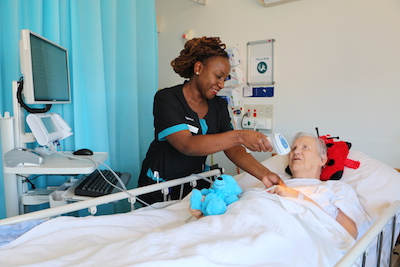
ACT Health will go live with its Digital Health Record in September 2022 in a big bang implementation that it believes will allow it to leapfrog the other jurisdictions to become the most digitally enabled health system in the country.
The centrepiece of the DHR is what ACT Health CIO Peter O’Halloran says will be deepest and broadest implementation of the Epic electronic medical record in Australia, which will now also include Epic’s Beaker laboratory information system, its Radiant radiology information system and its patient administration system, the first time these modules will be rolled out locally.

Auckland-headquartered Southern Cross Healthcare has completed the roll-out of Orion Health’s electronic clinical notes solution and is now moving on to electronic vital signs and medication management.
The private healthcare provider, formerly known as Southern Cross Hospitals, began the first phase of the roll-out of Orion’s Clinical Workstation solution in 2017 with nursing documentation.

ASX-listed Oneview Healthcare has launched a cloud-based patient care experience platform deployed on Microsoft Azure aimed at small and large hospital organisations.
CXP Cloud Enterprise was first built in association with NYU Langone Health in New York as an inpatient virtual care platform that was rolled out during the COVID-19 pandemic.

The New Zealand Ministry of Health has launched a new vaccination dashboard to provide vaccination statistics that will be updated every Wednesday.
The dashboard will provide a cumulative total of all vaccinations that have been administered and entered into the COVID-19 immunisation register up until midnight of the night before the data is published.

The outbreak of COVID-19 in Western Sydney over the Christmas New Year period known as the Berala cluster put to the test a new model of care being introduced in the region, with 10 of the 28 patients cared for in their own homes under the new Care in the Community program.
The program, a joint initiative between WentWest - the Western Sydney Primary Health Network (WSPHN) and Western Sydney Local Health District (WSLHD), saw patients with no known GP offered virtual care in their own home from two of four contracted general practices.

Sydney’s Wolper Jewish Hospital will roll out Global Health’s MasterCare solution as its new patient administration system (PAS), with a go-live expected in May.
It plans to then roll out the MasterCare+ electronic discharge summary solution and integrate with the My Health Record in a later phase.
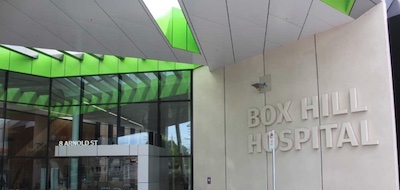
Melbourne’s Eastern Health will resume elective surgery this week and will gradually reopen specialist clinics and outpatients appointments following the cyber incident that affected its systems on March 16, which has been confirmed as a ransomware attack.
Eastern Health CIO Lachlan Bakewell said there had been no sign of any exfiltration of data and the organisation was now working with industry partners, cybersecurity experts, the Department of Health and Department of Premier and Cabinet to stage a structured return to normal activity.

US information blocking ban, Japan’s digital health passport, open source interoperability, video-based vitals monitoring, mass vaccine booking system, Johns Hopkins COVID tracker, FHIR approach to vaccine scheduling, Germany’s ePA, online triage in general practice
Why experts say the information blocking ban will be game changing for patients
FierceHealthcare ~ Heather Landi ~ 31/03/2021
Starting next week, a new regulation goes into effect that will give patients easier access to their digital health records through their smartphones.
ANA trials COVID-19 digital health passport at Haneda Airport
Japan Times ~ Staff writer ~ 29/03/2021
The app, one of a number of digital health passports being trialed around the world to allow airlines and authorities to expedite immigration procedures at airports, is backed by the World Economic Forum. It certifies both coronavirus test results and vaccination status.

ACT Health has gone live with a full version of the Epic electronic medical record 18 months earlier than scheduled to help manage COVID-19 vaccinations for the ACT public health system.
Nursing staff administering the vaccines are using Epic’s Rover smartphone app on Spectralink Versity handsets, with data from Epic and the territory’s iPM patient administration system then uploaded to the Australian Immunisation Register as a manual file.
The plan is to work with Services Australia to implement uploads through APIs. And while bookings are still being done by phone, in the next week or two ACT Health plans to go live with an online booking system using Epic’s MyChart patient portal, which has been branded as MyDHR in the ACT.

The Australian Digital Health Agency (ADHA) has released a second round of its specialist software enhancement program, offering payments of $150,000 or more to enhance My Health Record functionality in clinical information systems used by private medical specialists.
The industry offer involves two phases, with a $40,000 payment for developing a design document and $150,000 if the enhanced software is deployed to 11 private specialist practices.
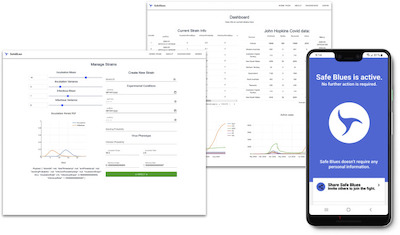
Australian and New Zealand researchers have developed an Android app based on the Singapore government’s OpenTrace contact tracing software that will be used in an upcoming trial simulating how pathogens such as the coronavirus spread.
The Safe Blues trial, led by the University of Queensland, will use Bluetooth signals to transmit tokens between mobile devices that mimic virus spread in a real-time manner and study how social mobility affects the spread of an epidemic.
It will be tried out by students and staff from the University of Auckland from May to provide information on how COVID-19 spreads though communities.

Pen CS has launched COVID-19 vaccine administration and monitoring dashboards for general practices, Aboriginal medical services and primary health networks using Pen’s CAT Plus solution.
The dashboards can help risk-stratify patients, and track and monitor vaccine administration.
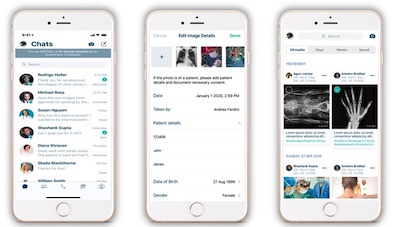
Sydney’s St George Hospital has gone live with the myBeepr clinical communication platform, which allows staff to create individual and group chats, conduct role-based messaging, manage tasks and transmit secure clinical photos.
It is now being used by 850 medical staff since being implemented in February with more than 23,000 messages sent and 700 clinical images shared weekly.
The mobile application was developed by colorectal surgeon Vikram Balakrishnan and entrepreneurs Kruti Balakrishnan and Krupa Bhagani in 2016 to improve communication between healthcare professionals.

Hills has signed a three-year agreement with US-based patient engagement solution vendor GetWellNetwork to distribute the company’s GetWell Loop and GetWell Inpatient products in Australia and New Zealand.
Hills has rolled out GetWell Inpatient at Westmead Hospital’s Central Acute Services Building, the new Calvary Adelaide Hospital and the Royal Hobart Hospital, and will install it in other hospitals in the Western Sydney Local Health District in the coming months.

Canterbury District Health Board has temporarily taken its COVID-19 vaccination booking system offline after a potential security vulnerability was discovered by a member of the public that exposed details of 716 people who had registered to use the system.
Hutt Valley and Capital & Coast DHBs, which use a different version of the booking system, are reviewing the security of their internal system in light of the Canterbury incident, according to the Ministry of Health.
The breach potentially allowed those invited to make appointments to view details about other individuals also making appointments.
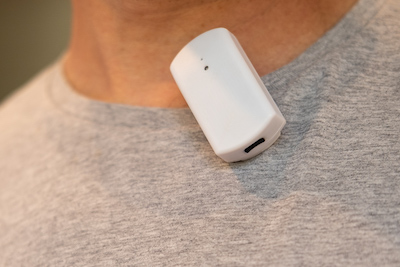
ASX-listed digital health company ResApp Health has received TGA approval to list its new wearable device for monitoring cough on the Australian Register of Therapeutic Goods (ARTG).
The device, which has also received CE Mark certification allowing it to be manufactured and sold in Europe, is initially aimed at the clinical trial market to measure cough frequency but is also expected to be used as a platform for monitoring at-risk patients with COPD or asthma.

A national tool for monitoring and sharing intensive care unit capacity that was developed during the initial COVID-19 outbreak last March and called into action in Victoria’s second wave has the ability to help with other local and national public health emergencies, its developers say.
The Critical Health Resources Information System (CHRIS) was made available to all ICUs, state and territory health departments, patient transport and retrieval agencies and also to ICUs in New Zealand following a fast development process.

UK’s digital child health records, Spanish telepharmacy, US telehealth, Apple Watch for frailty, Microsoft’s vaccine management system reboot, vaccine passports, US VA review of Cerner EHR, health IT for COVID-19, mail merge mishap, Amazon’s app-based telehealth services
Child health records set to be digitised earlier than planned
Digital Health News ~ Andrea Downey ~ 25/03/2021
Personal child health records are set to be digitised earlier than planned under government plans to give families greater access to their children’s data.
Spanish mobile network Yoigo launches telemedicine service Doctor Go
MobiHealthNews ~ Sara Mageit ~ 25/03/2021
At €6 per month, the Doctor Go telemedicine service offers video-consultations with family doctors and specialists, as well as telepharmacy services for electronic prescriptions and the delivery of medicines.


A couple of Melbourne hospitals were in the news this week, both for good and for unfortunate reasons. The Royal Victorian Eye and Ear Hospital let us know that it had gone live with Cerner’s FirstNet in its emergency department and the ambulatory module in its acute ophthalmology clinic. Eye and Ear was one of the original HealthSmart hospitals but never fully rolled out the Cerner EMR as planned, instead using its PowerChart module mainly for order entry and discharge documentation.
Like some other hospitals that have had a go-live in the age of COVID, the Eye and Ear had a bit of a delay to its original plan, but it all seems to have gone smoothly since it went live last Monday. EMR project manager Neil Harris said that while FirstNet has been implemented in many EDs in big general hospitals, the specialist nature of the Eye and Ear made it a little different.

The federal government has extended the special arrangements for image-based prescriptions until the end of September, and has agreed to continue subsidising the cost of SMS for electronic prescriptions until June.
The special arrangement for image-based prescriptions allows doctors to email, text or fax a digital image of a paper prescription to the patient’s pharmacy following a telehealth consult.
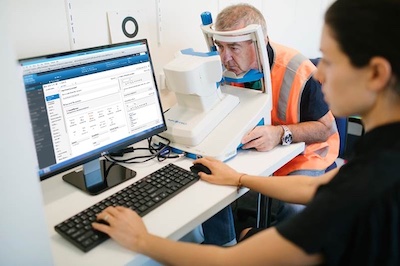
The Royal Victorian Eye and Ear Hospital in Melbourne went live last week with the Cerner FirstNet system in its emergency department and Cerner’s ambulatory module in its acute ophthalmology specialist clinic.
The project involved localisation of the solution to suit the complex needs of a highly specialised hospital, along with a number of medical device integrations and the use of Cerner’s Camera Capture solution, which lets clinicians securely capture and store clinical images directly into the patient record.
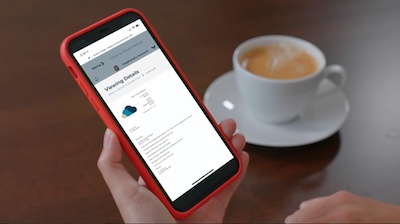
Cloud-based medical practice management system vendor Clinic to Cloud has upgraded its Patient Portal app, which allows patients to manage their bookings, access pathology and imaging results and upload referrals on their smartphones.
The upgrade means the portal has been enabled for any device and can now be used on tablets, smartphones and through most browsers.
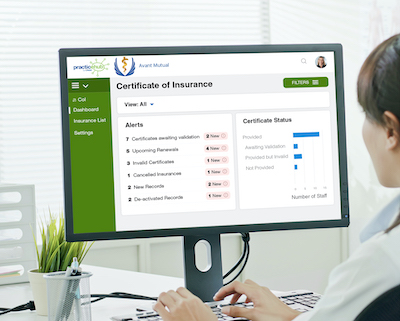
Medical indemnity insurer Avant has added a new automated certificate of insurance (COI) app to its PracticeHub software platform.
The app promises to help speed up what was previously a manual process of collecting and storing annual certificates of insurance from multiple providers.
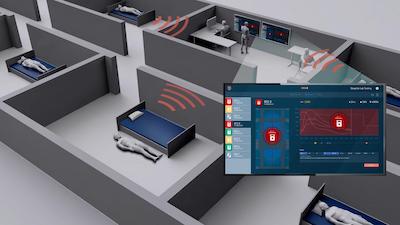
Melbourne-based research and manufacturing company Sleeptite has launched a new smart monitoring system called REMi that can monitor movement and vital signs of aged care residents while they sleep.
The technology has been built in association with RMIT University and is designed to enable aged care staff to non-intrusively monitor residents during the night and receive alerts at critical moments such as if a resident falls, or is at risk of falling.

Some IT systems still remain offline at Melbourne’s Eastern Health following last week’s cyber incident, which the organisation described as “significant”.
The incident has also affected external electronic and faxed communications to GPs. The majority of IT systems, including email, were offline as a precaution for most of last week and some elective surgery and outpatient appointments had to be cancelled.

Mobility and clinical communications technology provider Wavelink has launched a new business unit called Connected Health that will bring together vendor partners to offer tailored solutions to healthcare organisations.
Wavelink works with vendors such as Spectralink, Alcatel Lucent Enterprise, Olinqua, Spok and SOTI to offer a portfolio of clinical applications on smart devices for staff duress, voice and secure text, vital sign monitoring, medication management, critical alert management and equipment location finding.

Health IT vendor Orion Health has signed a contract with NSW’s Justice Health and Forensic Mental Health Network (JHFMHN) to roll out Orion Health’s medication management and electronic medicines administration (eMAR) solution.
The new capability will be part of the continued development of the network’s Justice Health electronic Health System (JHeHS), which Orion Health originally implemented in 2014.
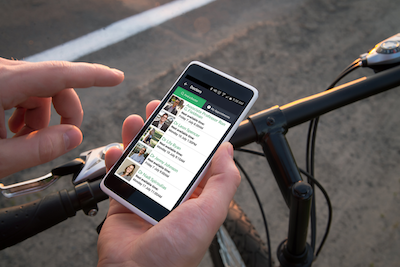
Patient engagement platform vendor HotDoc has gone live with its new COVID-19 vaccine solution, allowing patients to find participating clinics through the HotDoc app and on the Healthdirect eligibility checker and vaccine clinic finder site.
The Healthdirect site is now displaying live appointment availability and links directly to the clinics’ booking pages as appointments are made available.

Clinical and practice management software vendor MedicalDirector has partnered with online appointment booking and directory service HealthEngine to offer an integrated patient engagement solution.
Practices using MedicalDirector Clinical, Pracsoft and Helix will be able to securely manage HealthEngine appointment bookings, recalls and reminders, as well as COVID-19 vaccinations through the integration of HealthEngine’s COVAX online booking solution.

Nasdaq Helsinki listed ophthalmic diagnostic solutions vendor Revenio has bought Australian teleophthalmology and clinical communication platform Oculo, heralding a move into the eye health software sector for the Finnish company.
Oculo was founded in 2015 as a spin-out from the Centre for Eye Research Australia (CERA) to support the sharing of clinical imaging, referrals and other clinical correspondence securely between healthcare professionals.
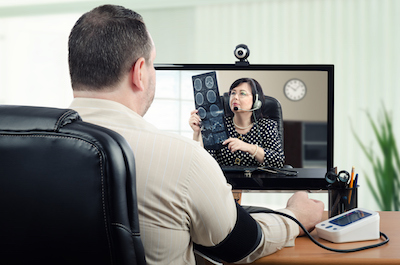
Amazon expands telehealth platform, why government tech is so hard, Singapore and NZ in talks on vax certificates, China uses WeChat for vax passport, EU COVID apps interoperate, HIMSS settles expo class action, US vaccine finder website, Ontario booking system
Amazon enters telehealth, but competitors “will not go quietly”
MedCity News ~ Elise Reuter ~ 17/03/2021
Telemedicine leaders like Teladoc and Amwell may have seen their shares dip after the news Wednesday that Amazon will be selling its telehealth platform to employers.
Why is it so hard to build government technology?
MIT Technology Review ~ Cat Ferguson ~ 17/03/2021
The pandemic has shown how difficult it can be for the US to succeed with major technology projects. We asked leading thinkers what they would do to change that.

General practice telephone lines took a pounding this week as the federal government’s vaccination booking system roll-out took yet another turn for the worse. No one was expecting the eligibility checker and vaccine clinic finder site to go live on Wednesday morning but live it went, and while the platform is technically fine, its appointment availability limitations were immediately obvious to anyone trying to use it to actually make a booking.
The Department of Health is insisting that it emailed the 1000 or so listed practices on Tuesday to tell them it was going live the next day, and federal Health Minister Greg Hunt is sticking to his guns with his belief that only practices who had “applied, been approved, and submitted an order themselves” were listed.

Paramedics from ambulance service St John have been given direct access to patient information via the HealthOne shared care record view on their portable electronic devices.
HealthOne stores patient information such as GP records, prescribed medications and test results for patients throughout the South Island and is accessible by GPs and community pharmacists. Hospital-based clinicians can access it through the Health Connect South (HCS) system.
According to the South Island Alliance, HealthOne has been available to St John’s clinical desk staff since 2017, but paramedics will now be able to access it remotely at the point of care.

The federal government is promising that over 100 GP-led respiratory clinics will be open for Phase 1b vaccination bookings through the eligibility checker website tomorrow, despite the problems encountered by people trying to book yesterday.
Bookings for the GP-led respiratory clinics have been handled by HotDoc since they began rolling out in April last year. Health Minister Greg Hunt said today that they would “pivot” to being vaccination providers, with supplies averaging 1000 shots per week in the initial stages.

Roger Cook will continue in his role as WA Health Minister in the new state cabinet following the return of the Labor government at the state election last week.
Mr Cook, who is also deputy premier, also has responsibility for medical research, science, state development, jobs and trade.

Melbourne’s Eastern Health has cancelled non-urgent elective procedures following a cyber incident on Tuesday evening.
The organisation, which runs Box Hill, Angliss and Maroondah hospitals in Melbourne’s east, along with Healesville Hospital in the Yarra Ranges, issued a statement saying it had taken IT systems offline.

Australia has become the first country outside of the US to launch Google’s depression screener in its search function.
The tool helps people see their risk for depression and can connect them with the evidence-based resources and crisis hotlines, including Black Dog Institute and Lifeline.
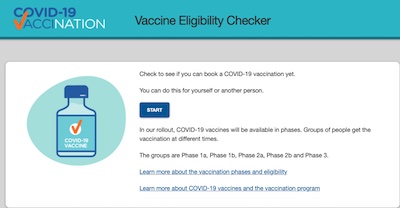
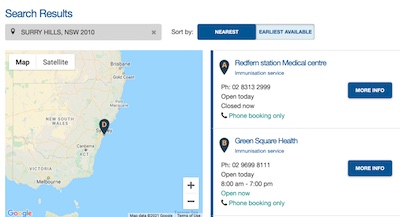
Australia’s new national vaccination information and location service is live but is not yet fully functional, with a restricted number of clinics listed on the searchable Healthdirect site and only a handful showing they are offering online bookings. Most are listed as offering telephone bookings only.
Health Minister Greg Hunt announced this morning that Australians eligible for Phase 1B will be able to find a vaccination provider through the COVID-19 vaccine eligibility checker, with vaccinations beginning next week.

The Department of Health will go live in the next few weeks with a facility to allow people to register to receive a notification of when they will be eligible to book for a COVID-19 vaccination.
According to department officials, a 1800 number will also be available for non-digitally enabled people to give them assistance in checking their eligibility and to help them make an appointment.
This will complement the online booking system that is being built by HealthEngine, booking systems used by general practices and direct conversations with health professionals.
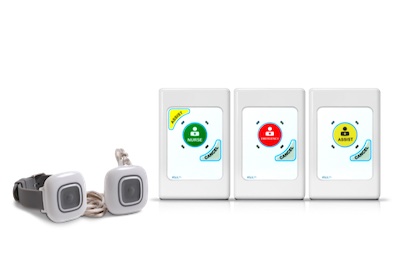
Hills Health Solutions has launched a new wireless nurse call solution, aimed at facilities that need to consider costs or that are looking to add on to existing solutions.
Hills says the wireless nurse call points and pendants remove the need for invasive wall penetrations and expensive cable runs, saving on installation costs and reducing operational downtime.

Pre-consultation clinical questionnaire BetterConsult has been updated to help capture key clinical screening questions from patients prior to COVID-19 vaccination appointments.
BetterConsult, developed by digital health firm HealthShare and integrated with Best Practice, is a digital clinical questionnaire that provides practices with a concise patient summary before the appointment.
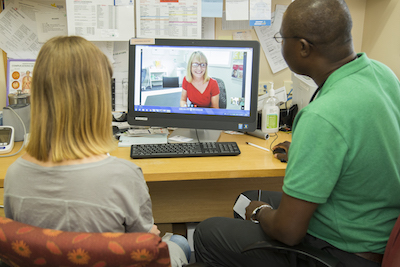
The federal government has extended support for telehealth on the Medicare Benefits Schedule (MBS) for a further three months.
As part of a $1.1 billion package of extended measures announced yesterday, the government says it will continue to subsidise telehealth services and care until June 30. The temporary measures were due to expire on March 31.

Attend Anywhere conquers NHS, India’s digital health plan, virtual care in Malaysia, IBM blockchain for Germany’s vaccine certificates, US Covid relief package and health IT, sign-up site for leftover Covid vax, smart speakers track heart rhythm, Telus Health buys Babylon Canada, guide to digital health passports
From Australia to the UK – Attend Anywhere’s 10 year journey
Digital Health News ~ Hannah Crouch ~ 11/03/2021
Not too many people had heard of Attend Anywhere before March 2020 but since then the video consulting capability has been offered to all, and adopted by most, NHS trusts across England.
Demystifying the digital healthcare transformation in India
CXOToday ~ Srinivas Prasad ~ 05/03/2021
The Indian healthcare industry is on the cusp of a digital transformation. The end goal of this transformation, which is led by the government, is to provide universal, affordable, equitable and quality care to all citizens, leveraging digital technologies.

This week we saw state and federal politicians dropping like flies, including Victorian Premier Daniel Andrews, who did his back in, and federal Health Minister Greg Hunt, who had a run in with cellulitis and ended up on an IV drip. It led to some unfortunate headlines such as the one that (warning: profanity) breakfast TV show Sunrise ran on Wednesday and also led Prime Minister Scott Morrison to take over as acting health minister, which is also turning out to be a bit unfortunate.
Mr Morrison may be able to sell some dodgy half-price plane fares as just the ticket to get the tourism industry back on its feet, but he was on much shakier ground today when he insisted to reporters that the government had not, in fact, promised that all Australians would be vaccinated by October.

Canadian EMR vendor WELL Health Technologies has agreed to buy New Zealand-founded practice management system vendor Intrahealth for $C19.25 million ($NZ21.25m).
Intrahealth provides its Profile PMS to approximately 15,000 clinicians, mainly general practices and medical specialists in New Zealand, Australia and Canada as well as the New Zealand Defence Force and the Australian Antarctic Division.

Google Cloud has made its healthcare consent management application programming interface (API) generally available, providing healthcare app developers and clinical researchers an easy way to manage individual consent over the use of their health data.
The API has been trialled since last year and has been used by early adopters to create things like personalised patient portals, integrate data into clinical workflows based on patient consent, and develop virtual clinical trials.

The Australian Medical Association (AMA) is lobbying the federal government for an extension to the temporary MBS items for telehealth in the short term, with the item numbers due to expire on March 31.
The federal government has promised that telehealth will be a permanent feature of Medicare in the long term but the AMA says it is concerned that general practices and patients can’t plan consultations beyond the end of the month, despite the ongoing pandemic.

Australia's two leading general practice clinical software vendors are reporting teething problems with the introduction of active ingredient prescribing (AIP), with confusion over the lists of medicines that are excluded from the new rules and those where using both active ingredient and brand name is still recommended.
Pharmacy groups are also reporting problems with prescriptions, including complaints that the intention of the prescriber is sometimes unclear and that listing ingredients alphabetically is leading to confusion about dosage.
New rules requiring that doctors prescribe by active ingredient rather than brand became mandatory on February 1 but Pulse+IT sources say some prescribers were unaware of the changes.
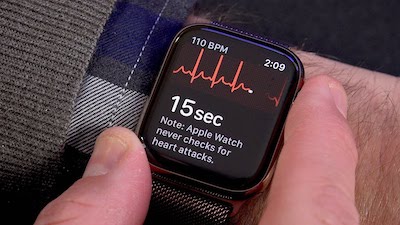
Apple’s single-channel electrocardiogram app for the Apple Watch has been added to the Australian Register of Therapeutic Goods (ARTG), joining its irregular rhythm notification feature, which was added last month.
The ECG app has been classed as a Class IIA medical device and is intended to be used with the Apple Watch to create, record, store, transfer and display a single-channel ECG.

The AusVaxSafety program has begun active safety surveillance of the Pfizer BioNTech vaccine, using the Vaxtracker and SmartVax tools to survey potential side effects.
The Therapeutic Goods Administration (TGA) is now collecting and evaluating reports of suspected side effects and will publish data every Wednesday.
AusVaxSafety, which is run by the National Centre for Immunisation Research and Surveillance (NCIRS), uses the tools to send follow-up SMS messages and emails with a survey to people who receive COVID-19 vaccines.

Clinical coding and grouping software developer Greenlake Medical has released fastABF, an open-source software module that promises to speed up the development of activity-based funding (ABF) price calculations.
The Melbourne-headquartered company, which makes the Medici coding, grouping and revenue management solution, is releasing fastABF under a free open-source license as well as a commercial basis and is inviting hospital IT teams familiar with Python to use it and to suggest features and enhancements.
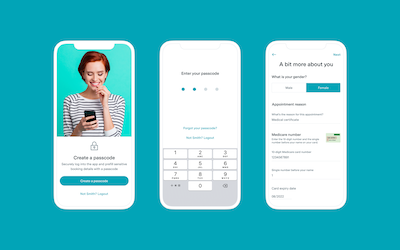
Online appointment booking and directory service HealthEngine has been chosen to build the booking platform for the federal government’s COVID-19 Vaccination Information and Booking Service.
The booking platform will be launched in the next few weeks to help support the vaccination roll-out, allowing patients to locate and book appointments with designated vaccine clinics via a service finder based on the National Health Services Directory (NHSD).

Pharmacy software provider GuildLink is enhancing its professional services platform GuildCare NG to allow for real-time integration with the Australian Immunisation Register (AIR) and to allow patients to book an appointment directly with their pharmacist.
GuildLink has been integrated with the AIR since 2018 with vaccination cases batch uploaded overnight. The enhancements will mean data can be uploaded at the point of service.

EHRs and Covid vax, South Africa and Malaysia live with digital health passport, Europe’s vax program, France Covid health pass, NHS Covid app update, Google Covid tracker platform, US ransomware attacks, New York trials IBM’s digital health pass, malware by SEO, virtual care provider makes house calls
Why electronic health records haven't helped US with vaccinations
IEEE Spectrum ~ Robert N Charette ~ 04/03/2021
Covid-19 has laid bare crippling interoperability issues.

It did not go unnoticed that the final report of the Royal Commission into Aged Care Quality and Safety released this week was titled Care, Dignity and Respect, a far more aspirational name than that which starkly laid out the findings of the commission’s interim report in October 2019: Neglect. That being said, if there was one sentence that summed up the findings of the final report and the national shame the royal commission has uncovered, it was this one: “Substandard care and abuse pervades the Australian aged care system.”
The 148 recommendations in the final report cover the gamut of issues facing the sector, from how to regulate it to how to fund it and how to ensure its vast workforce is equipped to adequately provide the care that appears to be so lacking. The final report also placed a good deal of emphasis on information, data and technology, which also appear to be sorely lacking.
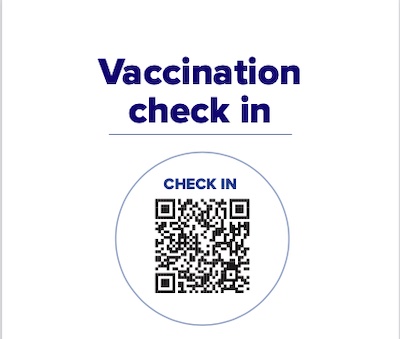
NT Health’s vaccination clinic in Alice Springs is using the new clinician vaccine integrated platform (CVIP) developed by the Australian Digital Health Agency (ADHA) for healthcare providers who don’t have clinical software that can upload data to the national immunisation register.
The CVIP can be accessed by recognised vaccination providers through a web browser, with the agency also working on app that it says should be available soon.

Sydney Children’s Hospitals Network (SCHN) is now live with a new solution integrated into its Cerner electronic medical record (EMR) that provides a direct communications link between multiple clinicians and their patients or carers through an app on the patient’s mobile device.
The Cartula Health solution went live in November and allows clinicians to send information such as care plans and discharge summaries to the patient’s app from an MPage within the EMR, and to receive communication back from the patient or carer directly in the EMR through HL7 messaging.

The Hunter New England and Central Coast Primary Health Network (HNECC) has added a new vaccination module to the Capacity Tracker tool it launched last year to help gauge capacity constraints in aged care facilities and general practices during the COVID-19 pandemic.
The new module allows general practices and RACFs to advise the PHN of vaccine stocks available by location, as well as authorised practices and immunisation locations, immunisers available by location, and staff and residents vaccinated.
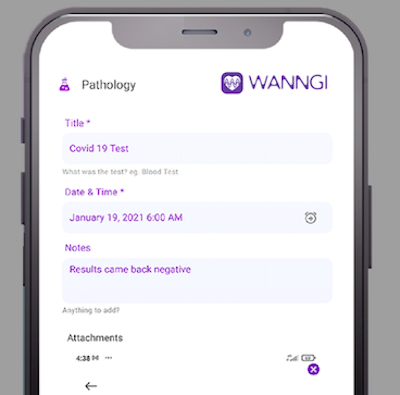
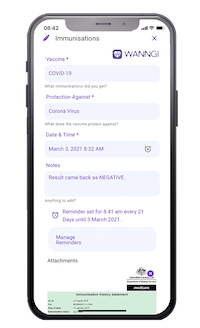
Health management app Wanngi has undergone a complete redesign with new features added, including the ability to store and display COVID-19 test results and vaccination details along with medical history, medications and diagnostic images.
Wanngi founder and CEO Maree Beare is also targeting new use cases for the app, including to assist patients and doctors during telehealth consults and in the clinical trial sector to enable participants to easily share symptoms and adverse events.

ASX-listed Alcidion Group has signed a contract with New Zealand’s Te Manawa Taki (TMT) district health boards to pilot the OPENeP closed loop electronic medication management solution, replacing the region’s one instance of MedChart.
The project is being led by Taranaki DHB and will see the Azure-hosted solution piloted at Hāwera Hospital before being rolled out to Hauora Tairāwhiti, Lakes, Bay of Plenty and Waikato DHBs if successful.
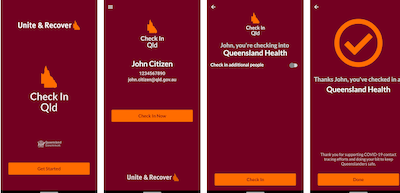
Queensland has become the final jurisdiction to roll out a QR code-based check-in app for contact tracing, adopting the Check In CBR app first developed by the ACT and subsequently adopted by the Northern Territory and Tasmania.
Dubbed Check In Qld, the app has been tested and trialled since January at 204 venues. Alternative systems that businesses are already using such as online forms, membership card scanners, online booking systems and digital spreadsheets can continue to be used.

Aged care providers should be required to use a digital care management system and the My Health Record system by July next year, the Royal Commission into Aged Care Quality and Safety is recommending.
Publicly releasing its final report today, the Commission paints a bleak picture of the aged care system in Australia, which its says is pervaded by substandard care and abuse of vulnerable people and was a national shame.
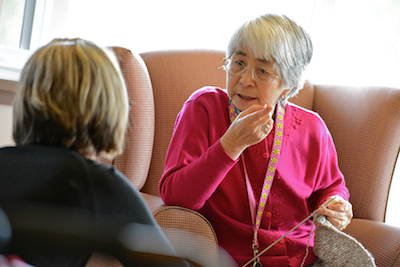
ASX-listed health insurer Medibank is targeting clinical home care and access to virtual care such as telehealth for its Medibank Health business, having seeing an uplift in demand during the COVID-19 pandemic.
Medibank’s half-year results for 2021 showed Medibank Health revenue was up 13 per cent to $145.6 million, which it said reflected increased demand for in-home care and telehealth services.

EMR burnout, Canadian provincial PMS fail, FHIR API links PMS to Apple Health Records, RwandAir to trial IATA travel pass, Google building health record search tool, NHS digital assessment criteria, COVID-19 app for aged care, COVID-19 dataset, Ryuk targeting French hospitals, IBM Watson Health sale
Experts underestimated EHRs' impact on burnout after HITECH Act
Healthcare IT News ~ Kat Jercich ~ 19/02/2021
Many 2020 fellows labeled concerns around decreased data quality from cut/paste behaviors, forced workarounds due to EHR limitations, increase in documentation and reporting requirements, and clinician cognitive load as "much worse than we expected."
N.B. electronic medical records system rollout botched, says auditor general
CBC News ~ Jacques Poitras ~ 23/02/2021
The New Brunswick government botched the rollout of an electronic medical record system for doctors, leading to $26 million of provincial and federal money being spent on a tool that fewer than half of the province's physicians adopted.

As the Phase 1a vaccination roll-out began this week in Australia, we had a quick chat to some of the head honchos at Cerner Asia Pacific about how the EMR vendor was helping its users in Australia get with the program. Cerner started working on a mass vaccination solution for its global clients in the middle of last year having foreseen that this would prove somewhat useful, and it has since swung into action and rolled it out in the US and the UK, which is acting as a reference site for Australian users.
Cerner sites such as Royal Prince Alfred, Liverpool and Westmead hospitals in Sydney and The Alfred in Melbourne began using the COVID-19 vaccination update that Cerner has tailored for the local market this week, with vaccination data able to be extracted and uploaded to the Australian Immunisation Register (AIR). We hear that a couple of Queensland hospitals are also using the new capability.

Former Australian Digital Health Agency interim CEO Bettina McMahon has been named as the new CEO of health information and helpline operator Healthdirect Australia.
Ms McMahon was also chief operating officer and executive general manager for industry and government at ADHA, and also held senior positions at its predecessor, the National e-Health Transition Authority (NEHTA).

Electronic medical record vendor Cerner has rolled out upgrades to its Millennium suite to support Australia’s Phase 1a COVID-19 vaccination program, adding packages that allow hospitals to manage patient registration, core medications and documentation of each vaccination encounter.
Cerner vaccination data can be extracted to support the upload of vaccination details to the Australian Immunisation Register (AIR) and the company is currently developing a direct link to the AIR from within the EMR.
The system is live this week and is supporting the first phase of the vaccination program at The Alfred in Melbourne, and Westmead, Liverpool and RPA hospitals in Sydney.

Air New Zealand has joined Singapore Airlines, Etihad, Emirates and Qatar Airways in planning a trial of the digital travel pass being developed by the International Air Transport Association (IATA).
IATA is developing four open sourced and interoperable modules for the pass, including a registry of health requirements so passengers can find information on travel, testing and vaccine requirements for their journey.

Healthdirect Australia is offering callers to its healthdirect helpline a personalised summary of triage advice and information via SMS to help them better understand and remember the health advice they receive over the phone.
At the end of the call, registered nurses who staff the helpline offer to send an SMS to the caller containing the nurse’s advice and a link to a unique webpage with additional care information, including what do to if their symptoms change and how to find a relevant health service if needed.

Clinical communication and workflow technology vendor Vocera Communications has partnered with nurse call system vendor Vitalcare to provide an integrated set of solutions aimed at the aged care and acute care sectors.
The partnership includes a range of communication solutions and products from enterprise-level voice and messaging solutions to bedside sensors.

Telstra Health has signed an agreement with Canadian telecommunications and digital health giant TELUS to roll out its Health Exchange International (THX-i) platform in Australia.
THX-i is an open standards-based platform that has identity management and aggregation capabilities that will allow secure, controlled access to a range of solutions and multiple clinical applications from both companies through one set of user credentials.
It also includes clinical data repositories and a marketplace of application programming interfaces (APIs) that third-party software developers can use to build new apps.
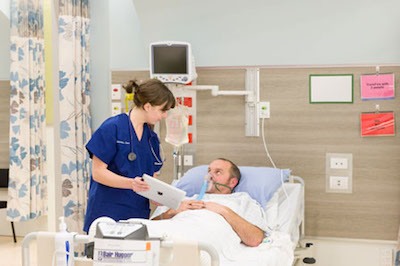
Ten hospitals across New Zealand are now linked in to the ICNET infection surveillance database hosted by Canterbury District Health Board (DHB), with new COVID-19 functionality launched last year helping providers to detect, manage and trace COVID-19 cases across the national hospital network, including the hotel quarantine network.
Canterbury DHB migrated Baxter Healthcare's ICNET to the public cloud during the COVID-19 lockdown in March last year, with Canterbury hosting the application and offering it to other DHBs as part of an Accident Compensation Corporation-funded expansion program.
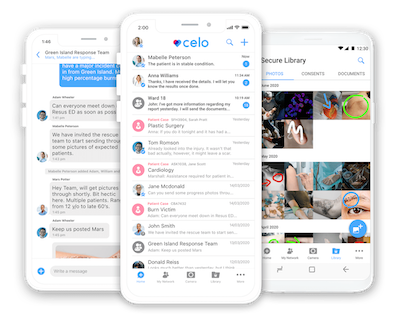
Secure messaging app vendor Celo has partnered with mobile app developer MedApps with a joint offering for the local healthcare sector.
MedApps markets the Med App mobile tool for accessing clinical and hospital guidelines and facilitating education and training, while Celo markets a secure healthcare messaging app to help teams communicate.
Celo CEO Steve Vlok said the partnership provided a few options on how to roll out the platforms for a health organisation.

Western Sydney general practices are being invited to take part in a trial to study whether personalised SMS reminders are effective in improving the uptake and timeliness of routine childhood vaccinations.
The AuTOMATIC study is using the SmartVax automated SMS reminder module, part of the Perth company’s vaccine safety monitoring platform.
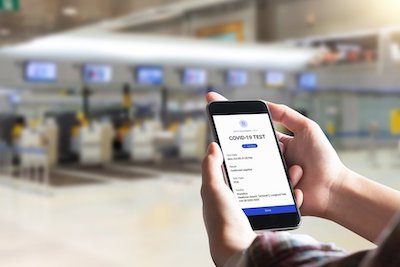
The Australasian Institute of Digital Health (AIDH) has put its support behind the creation of an international digital vaccine passport or Yellow Card that can verify details of a person’s vaccination for COVID-19 and would assist overseas travellers returning home.
It has also called for agreement on a global standard to record vaccination status to avoid interoperability challenges as international borders open up.
A number of groups around the world are working on developing digital records of vaccination that can be recognised by other countries but there are fears they are not talking to each other.

Germany’s elektronische Patientenakte, year of the QR code, Bahrain vaccine passport, no-cost ransomware service, IBM’s blockchain passport, Apple’s passport plans, AI for anonymised data, Microsoft’s vaccine booking software, COVID risk prediction, EMRs track ED presentations, Cerner’s mass vaccination solution, India’s ‘glitchy’ biometrics
New German digital project paves the way for online access to personal electronic health records
BMJ ~ Marion Grote-Westrick ~ 18/02/2021
On 1 January 2021, the largest digitization project in the German healthcare system—the electronic patient health record (elektronische Patientenakte – ePA)—was launched after sixteen years of preparation.
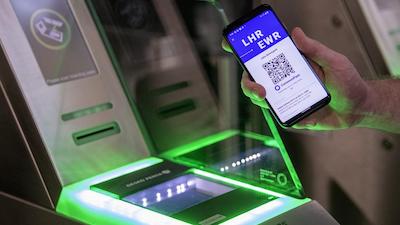
New Zealand kicked off its Covid-19 vaccination program today, with vaccinators themselves receiving the first of the Pfizer-BioNTech shots and border and quarantine staff to follow from tomorrow. Australia is set to start on Monday, with frontline health workers, quarantine and border workers and aged care and disability residents all being prepared for the first phase.
The ball has started rolling on the largest vaccination programs our countries have ever seen, and the hope is the majority of our populations will be covered by October. We’ll wait and see on that as systems fall into place to support the wider roll-out to the community, and fingers crossed everything goes smoothly. Our technology companies are coming to the party, deploying IT solutions at pace, and we hope to hear more news on how general practice will be supported as it prepares.
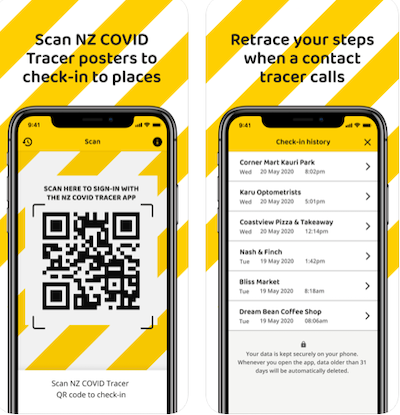
The New Zealand government is considering ways it can increase use of the NZ COVID Tracer including making it a requirement to use when attending events or retail outlets as figures show use fluctuates depending on alert levels.
Ministry of Health figures show that the number of scans using the app shot up to over a million in late January when the Northland outbreak was announced, and to over 1,500,000 earlier this week following three new cases in Auckland.

Electronic medical record vendor InterSystems has released new functionality in its TrakCare healthcare information system that provides users with an appointment booking system to schedule COVID-19 vaccinations.
The system is now available for TrakCare’s Australian and New Zealand users and has been tested in Scotland, helping NHS Lothian staff to book staff vaccination appointments.

Victoria’s Barwon Health is on the market for a new community electronic medical record to replace its existing The Care Manager (TCM) system and handle mental health, drug and alcohol services, community nursing and support for the Hospital Admission Risk Program (HARP).
The Community EMR is a key element of Barwon Health’s electronic health record platform, which is envisaged as an interoperable and integrated solution model with legacy systems consolidated into a suite of applications for a comprehensive single view of the patient.

Electronic medical record (EMR) vendor Allscripts has worked with the Australian Digital Health Agency to embed a native viewer of the My Health Record in its Sunrise EMR used in a number of South Australian public hospitals.
SA Health previously rolled out a viewer for discharge summaries, pathology reports and diagnostic imaging reports and has been linked to the national system since 2013 using the locally developed Healthcare Identifiers and PCEHR Services (HIPS) technology.

The Australian Digital Health Agency (ADHA) has begun scoping an aged care transfer summary for the My Health Record system, aiming to help provide more complete information during the transition of care of an aged care resident to another healthcare setting.
ADHA CEO Amanda Cattermole said the agency had held a meeting with its aged care advisory group (ACAG) last week to start the co-design process.

Healthcare communications system vendor Spok has released a localised version of its Spok Go secure messaging platform for Australia, adding local data residency and security regulations compliance along with localised language support for Australian English.
Spok Go has been designed specifically for the cloud and enables secure text messaging as an option for encrypted pager replacement. The system is able to route and escalate clinical alerts, and centralise directory and on-call scheduling information.

Medical billing application programming interface (API) specialist Claiming.com.au is set to go live with an upgrade to its Australian Immunisation Register (AIR) integration that will allow healthcare providers to send vaccine serial numbers and healthcare identifiers to the register.
Claiming.com.au completed a notice of integration (NOI) with Services Australia’s new Medicare web services interface last year for billing and for reporting vaccine encounters to the AIR.
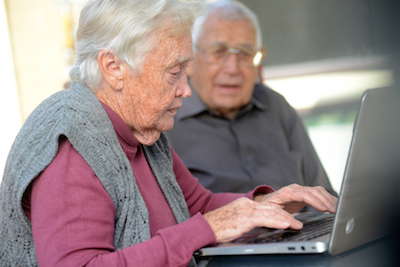
Tunstall Healthcare’s monitoring solutions and services are now available to eligible older South Australians under the state’s Personal AlertSA scheme.
Approved technologies include Tunstall’s SmartLink Guardian 4G in-home alarm with fall detector and its Gem4 mobile personal alarm with automatic fall detection and GPS locator.

Estonia trials vaccine passport, Cerner’s plans for data business, Google search for Covid outbreaks, Canada launches telewound partnership, UK review of health data, API vulnerabilities in health apps, NHS Covid app success, Japan Covid app failure, hackers post patient data, iPhone magnets affect pacemakers, SMS for Covid comms
Trust is key as Estonia tests global vaccine passports
AFP ~ Staff writer ~ 10/02/2021
Could a QR code open up the world? That is the question in Estonia as it takes a lead in global efforts to develop digital vaccine passports.
Cerner eyes opportunities in clinical research, population health as it builds data business
FierceHealthcare ~ Heather Landi ~ 10/02/2021
With slowing growth in the medical records software market, Cerner is eyeing opportunities in its data business, including in the clinical research space.

The decision by the Victorian government to order a snap five-day lockdown from midnight on Friday shows just how crucial the COVID-19 vaccination program will be. As Nobel laureate Peter Doherty said, if we want to avoid this sort of constant economic and social disruption, we are going to need a vaccination rate of over 80 per cent.
That will mean retaining confidence in the vaccines themselves, and getting them out as quickly and efficiently as possible. And that will need good, efficient management of the first phases of distribution and administration in hospitals, residential aged care, general practice and pharmacies.

The federal government needs to set up an independent aged care data authority with a central role in the aged care system to transform the management of data in the sector.
It also needs to extend the use of My Health Record to include aged care information, enhance the system to move from a documents-based capability to information-based capability, and it should redesign the My Aged Care website and Service Finder tool to ensure that they are fit for purpose.

Patient engagement platform GetWellNetwork is now integrated with Samsung’s healthcare-grade smart HTVs to deliver personalised information and education plans for patients.
GetWellNetwork’s platform is designed to engage patients to complete education for better care plan compliance, understand their medications and prepare them for discharge.
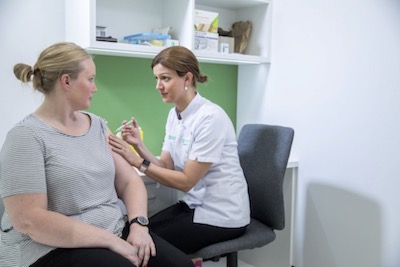
TerryWhite Chemmart plans to roll out a new online booking and appointment management platform from HealthEngine across its 450-strong chain to gear up for the COVID-19 and seasonal flu vaccination programs.
HealthEngine’s new solution is integrated with MedAdvisor’s pharmacy platform PlusOne, which will record and submit vaccination data directly to the Australian Immunisation Register (AIR).

New Zealand’s new national immunisation solution (NIS) has been built and is available to use when the roll-out of the first COVID-19 vaccine begins, Minister for COVID-19 Response Chris Hipkins says.
The $23 million NIS has been build as a replacement for the legacy National Immunisation Register (NIR) and promises to allow any health worker to record vaccinations anywhere and at any time. It also includes an inventory management system that includes information on where the vaccines are located, volumes and temperature, as well as expiry dates to minimise wastage.

All vaccination providers will now be required to report vaccinations to the Australian Immunisation Register (AIR) following the successful passage of a new law through Parliament last week.
Reporting to the AIR was previously at the discretion of vaccination providers but the new law means any COVID-19 vaccines, once approved for use and administered in Australia, must be reported to the AIR.
Seasonal flu vaccinations, which were previously only reported at a rate of about 50 per cent, must be reported to the AIR from March 1, and all other National Immunisation Program (NIP) vaccinations such as the MMR, HPV and pertussis vaccines, must be included from July 1.

Telstra Health has upgraded its community health and primary care services platform Communicare to help enable the tracking and tracing of patients receiving COVID-19 vaccinations.
Consumers using the Telstra Health’s HealthNow app can also get access to their immunisation status through their mobile device if they have enabled access to their My Health Record on the app.
The latest versions of Communicare are also compliant with the new active ingredient prescribing rules that became mandatory on February 1. Version 19.2 of Communicare now enables PBS and Repatriation PBS (RPBS) prescriptions to include active ingredients.

South Australia's My Home Hospital service is now live and open to eligible patients in metropolitan Adelaide, offering remote care and hospital in the home services for conditions such as kidney or respiratory infections, cellulitis or deep vein thrombosis.
My Home Hospital is being delivered in a joint venture between Calvary Health Care and Medibank, with Telstra Health supplying its virtual health monitoring solution to enable My Home Hospital to monitor the health and wellbeing of patients remotely and in real time.

The Australian government plans use the Australian Immunisation register and its immunisation history statements as the basis for digital and paper-based vaccination certificates that could be used as a COVID-19 vaccination passport.
The capability to access and download an immunisation history statement now is already available through Medicare online services in myGov and the Medicare Express Plus app.

Copyright © 2025 Pulse IT Communications Pty Ltd. No content published on this website can be reproduced by any person for any reason without the prior written permission of the publisher. If your organisation is featured in a Pulse+IT article you can purchase the permission to reproduce the article here.
Website Design by Get Leads AU.